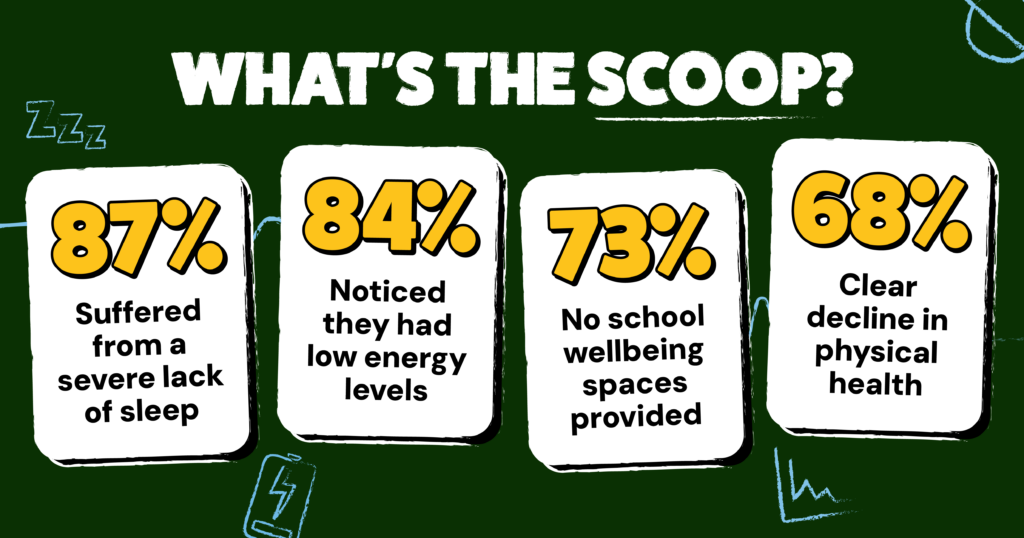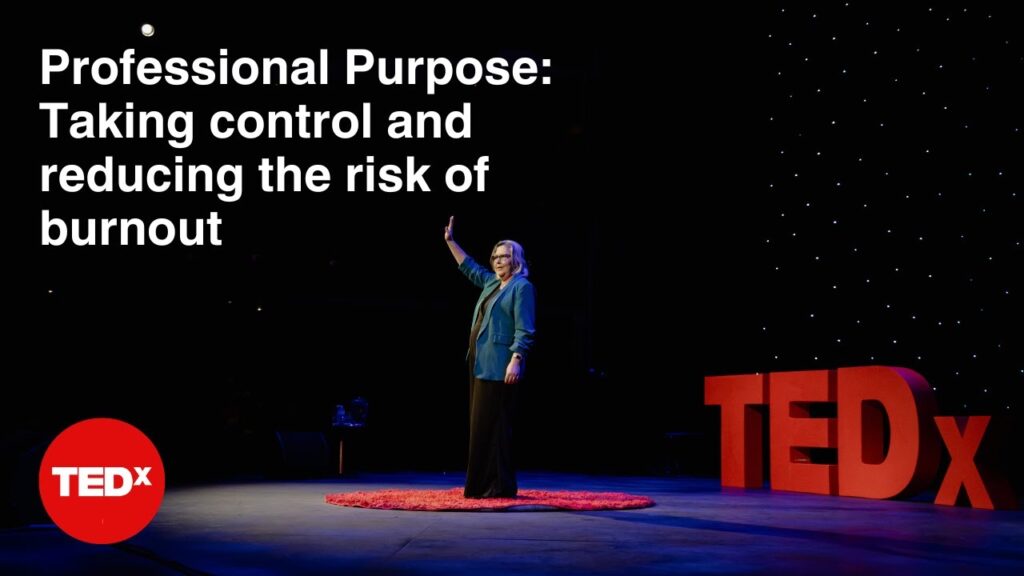What makes a good teacher?
One word that always comes up in response to this question is ‘resilience.’
The Chartered College of Teaching defines resilience as “emotional flexibility, the ability to stretch under pressure and bounce back after a challenging experience.” So why does it feel, in the current teaching climate, that to be resilient means to be tough, cold, and unemotional – or else you just simply won’t survive?
Of course, a good teacher is resilient, and determined, and does everything to make sure their pupils are cared for and learning.
But what is the cost of being resilient on teachers’ mental health?
But it doesn’t need to be this way!
In this blog, I’ll debunk the myth of Blue Monday and give you an insight into how you can build resilience without burning out.
- What is Blue Monday?
- What is Seasonal Affective Disorder?
- How can we redefine resilience?
- Tips to support your wellbeing in the winter
The Reality of Being ‘Resilient’
The 2024 Teacher Wellbeing Index found that 87% of teachers struggle with loss of sleep, and 84% experience low energy levels throughout the year, and the winter season is notably the most difficult time for many teachers.
As if post-Christmas wasn’t hard enough for educators, then there’s ‘Blue Monday’ – the third Monday in January – which is known as the most depressing day of the year. Winter means you often have to dig deeper to find that resilience and put on a brave face.
What is Blue Monday?
Blue Monday was a term coined in 2004, by psychologist Dr. Cliff Arnall as part of a marketing campaign for a travel company, Sky Travel. Arnall created a formula combining factors like post-holiday blues, financial strain, weather, and the pressure of New Year’s resolutions to identify the “most depressing day.”
However, scientists have debunked this formula as pseudoscience. In reality, mental health is a lot more complex, influenced by a variety of personal and environmental factors. So, although the concept of Blue Monday plays into our collective January blues, it’s not a definitive truth — and shouldn’t be something to dread.
What is Seasonal Affective Disorder (SAD)?
The colder, darker days can make a lot of us more prone to low moods and low energy.
However, when the changing weather starts to impact your mood in a way that interferes with your everyday life, this can be a sign of depression, known as Seasonal Affective Disorder (SAD).
Symptoms of SAD can vary from season to season, but generally they include:
- Lack of energy
- Not wanting to see people
- Difficulty concentrating
- Feeling tearful, guilty, or hopeless
- Sleeping too much or difficulty waking up
- Sleeping too little or waking up a lot
- Changes in your appetite
- Suicidal feelings
If you are concerned that you may have SAD please contact your GP, or get emergency advice.

Statistics: NASUWT Teacher Wellbeing Index 2024
How can we redefine resilience in teaching?
Teachers are no longer just teachers. They are therapists, childminders, psychologists, and social workers all at once.
While it’s admirable to do so much for your students, juggling these expectations does not make a resilient, strong teacher. It instead often leads to feeling of burnout and anxiety. So, what can resilience look like for you, without putting so much pressure on yourself?
I spoke to Dr Emma Kell, experienced teacher, senior leader, and public speaker. Dr Kell believes there are key things educators can do to prioritise their wellbeing during the winter:
“It’s cold, making it much harder to get out and do all those physical activities. That makes it especially important that we do prioritise our well-being with small acts of self-care every single day. Even if it’s listening to a piece of music that gives you an uplift, speaking to a friend who makes you laugh, or just getting out for 20 minutes a day, which I believe everybody is capable of doing.”
Set boundaries
- Leave your workload at school. This might seem impossible depending on your situation, but taking work home with you only blurs the line between work and relaxation, and can leave you with a constant feeling of needing to do something. The physical act of leaving your marking and planning in school signifies to your brain that home = time to relax.
- Alternatively, have a set time each week where this gets completed (i.e., a Sunday morning), and make effective use of your PPA time where possible.
- Don’t check your emails outside of work! Just don’t do it. As tempting as it may be, get out of this habit and create digital boundaries with school.
Comparison is the thief of joy
Whether you’re brand new to teaching or you have years of experience, it’s now easier than ever to compare yourself to other educators. #TeacherTok, while great for finding a community on social media, can make it easier to compare yourself to others.
As difficult as it may be, you have to remember that this content is often curated to look a certain way, so be mindful of unfollowing creators online if it only makes you feel worse about yourself.
Everyone’s teaching journey and circumstances are different – but this does not make you any less of a teacher!
Take something positive away from each day
No matter how difficult some days may seem at school, I promise you at least one positive thing happened. Even if it’s the smallest thing, like a typically shy pupil putting their hand up more or a pupil offering to help tidy up at the end of the lesson.
These little moments of positivity or progress help to keep you going when you feel weighed down by expectations. Keep track of these moments in a journal or even in your notes app, and look back on them as a reminder that you are making a difference, even when you think you’re not.
“If you feel embroiled in the day-to-day, overwhelmed, and snowed under, step back and ask yourself what really matters. What will really matter in five years time? If you’ve got a difficult class or a difficult relationship with a colleague, will this really matter in five years’ time?
Ask yourself: What do you want your legacy to be? What mark do you want to leave on this world?”

Listen to Dr Kell’s full TEDx Talk about burnout for her advice on this topic.
Tips to support your wellbeing in the winter
1. Treat January like any other month
January might not be your favourite month of the year, but try to approach this back-to-school time as you would any start of the school week – with intention and purpose.
- Start your day strong: Begin your morning with a ritual that energises you, like listening to your favourite album while you get ready in the morning, or going for a walk before you start the day.
- Plan something to look forward to: Schedule small things to look forward to throughout the weeks, such as a fun lesson with your pupils, or a catch-up with a friend after work.
2. Focus on what you can control
Unfortunately, the winter weather is out of our control. So, instead, try to focus on what you can control and prioritise key tasks.
Having a to-do list and ticking things off, whether online or on paper, can give you a sense of accomplishment during a busy time. Because, let’s face it, it can be all too easy to forget about everything you’ve achieved throughout the day.
In terms of your professional development, there can be a lot of pressure to stay up-to-date with the latest trends and updates in education, and this can make you feel like you need to be an expert in everything.
Instead, focus on one specific goal each week, such as embedding a new assessment technique in one of your lessons or adapting a new behaviour management strategy with a class.
3. Lean into positivity
January is a great opportunity to spread positivity across the whole school community. Why not aim to make this the most positive month of the year for your colleagues and pupils instead?
Bring positivity into the classroom with these examples:
- At the beginning or end of lessons, ask pupils to share one thing that they’re thankful for or excited about.
- Send a quick note of appreciation to another member of staff. Maybe someone who has helped you with lesson planning, or a teaching assistant who has continuously supported you in lessons. Positivity is contagious, and small gestures make a big difference.
- Book a Milkfluencer session for your pupils with Make Life Kind Charity. Bringing positivity into schools, Make Life Kind’s inspiring school speakers provide mental health talks and engaging workshops, covering topics such as confidence, mindset, anti-bullying, and more.
4. Build a wellbeing toolkit
In a busy school day, it can be easy to forget about yourself and your own needs.
Take an evening to plan out your ‘Wellbeing Toolkit,’ full of things to uplift you and support your mental health throughout the day. This can simply be a list of things you can turn to for comfort or support, or you could create a physical basket of items if you prefer.
Your ‘Wellbeing Toolkit’ could include things such as:
- An upbeat playlist and some noise-cancelling headphones.
- Inspirational quotes or affirmations to display at your desk.
- Snacks or drinks for when you need a pick-me-up.
- A journal and a list of journal prompts to help you reflect.
5. Reconnect with your “why”
Teaching is a demanding profession, but it’s also deeply rewarding. The start of a new year can be a great time to reflect on why you got into teaching in the first place.,
Make time to revisit positive feedback and highlights from your career so far. Although the tough days in teaching can feel particularly difficult, the positive moments make the hard work worth it.
“I find that the things that seemed to really matter when I was in my early days as a teacher have turned out to matter far less than I thought, like the aspiration to the next step, the desire to please people, or to impress people. What really matters is being present with the people who matter most, both within and beyond school.”
6. Create a post-school ritual
Establishing a routine to decompress after work is essential to looking after your mental health during winter. Your routine might feel particularly unsettled after the festive period, so take this time to build a relaxing evening ritual that sets you up for success.
Whether you listen to a podcast or audiobook on your way home or go for a walk after school, make sure to do something when you leave school that helps to signify the end of the workday.
Teaching in a winter wonderland…
While the myth of Blue Monday may linger, you have the power to redefine the day, and winter no longer needs to be a season to dread.
We know that getting up extra early to defrost your car, leaving the house in darkness, pupils being low on motivation, and coming home after sunset can make this time of year especially tough. That’s why you need to prioritise your wellbeing, or, come late spring and summer, you’ll be too burnt out to enjoy the lighter nights.
And remember – brighter days are coming!

